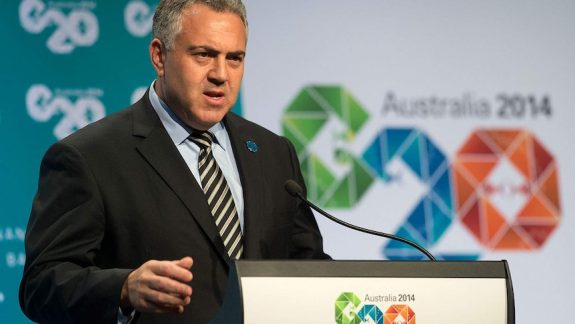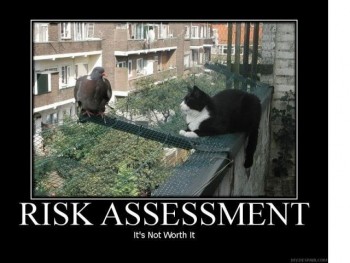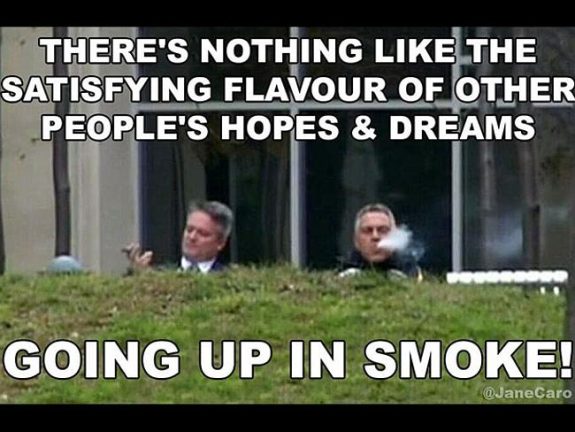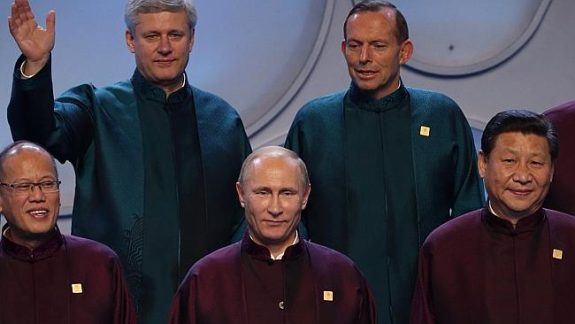Dear Mr Abbott,
I welcome your call for a mature debate on taxation. I too deplored the “screaming match” that surrounded the introduction of carbon pricing and am pleased you realise how counterproductive that sort of approach is to constructive governance.
As a concerned citizen I would like to make a few suggestions to get the ball rolling.
Your opening gambit is to increase the GST. This is a regressive tax which will, once again, disproportionately hit lower income earners. Treasury modelling done for the previous government showed that even a modest increase in the rate to 12.5 per cent – along with removal of exempted items such as food, health, childcare, and school fees – could hit a two income two-child family by as much as $205 per fortnight.
Perhaps there is a better way. For example:
Fossil fuel subsidies.
The Australian Government is set to spend over $40 billion in the form of tax rebates and concessions, foregone revenue and expedited write downs of assets per year from 2013/14 to 2016/17. This assessment only includes tax measures, and does not include direct grants or State Government measures, which could add billions more to the annual totals.
The proposed replacement climate policy, the Emissions Reduction Fund, relies on paying companies as an incentive to reduce their emissions. A fundamental contradiction exists between such a policy and the continuation of a range of existing fossil fuel subsidies. Many subsidies significantly reduce the economic signal for companies to identify efficiency opportunities.
Polluter handouts are also highly inequitable. For instance, the mining industry receives a 32c per litre discount on fuels such as petrol and diesel for off‐road use. So while most Australians are paying full price for their fuel at the bowser, their taxes also cover the cost of a huge discount to the mining industry. In all, this handout costs Australian taxpayers $2 billion each year.
Australia, along with all other G20 nations, committed in 2009 to phase out inefficient fossil fuel subsidies over the medium term. In his recent State of the Union address, US President Barack Obama reiterated the need to phase out tax‐based fossil fuel subsidies. Other organisations like the International Monetary Fund, the World Bank, the United Nations and the International Energy Agency are also calling for nations to end fossil fuel subsidies.
In 2009, the Commonwealth Treasury identified $8 billion in annual savings that could be made if Australia fulfilled this commitment. This money could be used to fund a wide range of nation‐building projects, yet to date we continue to use these funds to line the pockets of polluting, and in many cases highly profitable, industries.
Prime Minister Abbott has said that there is to be an end to corporate welfare. Statements by Treasurer Joe Hockey have warned that “the age of entitlement is over,” and that “everyone in Australia must do the heavy lifting now.” It is critical that this rhetoric, if applied, is applied consistently.
Superannuation tax concessions.
A study by the Australia Institute found the rate of growth of super tax concessions is greater than that of the pension despite the ageing population, meaning the cost of the tax concession will soon overtake the pension to become ”the single largest area of government expenditure,” by 2016-17.
”’The age pension currently costs $39 billion and superannuation tax concessions will cost the budget around $35 billion in 2013-14,” the study found.
It notes that the Commonwealth bill for these concessions is projected to rise at a staggering 12 per cent annually to be $50.7 billion in 2016-17.
”The overwhelming majority of this assistance flows to high-income earners,” the report finds.
”Low-income earners receive virtually no benefit. The combined cost of these two policies will be $74 billion in 2014 alone.”
Negative gearing.
The Grattan Institute’s report, Balancing budgets: tough choices we need, included a section on abolishing negative gearing, which it claims would save the Budget around $4 billion per year initially, falling to a saving of around $2 billion per year over the longer term.
Grattan highlights a number of non-budget (social) benefits from reforming negative gearing, namely:
1.increasing home ownership rates by reducing returns at the margin for landlords relative to first homebuyers; and
2.increasing investment in other more productive assets.
The report also debunks claims that reforming negative gearing would raise rents, since “for every landlord that sells, there would be a renter that buys and becomes a home-owner. The supply of rental properties would fall at the same rate as the number of renters”. It also does not believe that the construction of dwellings would be materially affected, since “almost all of investment property loans are now for existing dwellings”.
Tax avoidance.
A report by the Tax Justice Network – an international group focused on investigating tax avoidance – and the United Voice union says almost a third of companies listed on the ASX 200 pay 10 per cent or less in corporate tax.
This is substantially less than the statutory 30 per cent corporate tax rate.
Some companies, such as James Hardie and Westfield Retail Trust, pay zero tax.
Rupert Murdoch’s 21st Century Fox pays 1 per cent tax and casino group Echo Entertainment pays 5 per cent tax.
The report says the government is losing out on at least $8.4 billion in tax each year, which is substantial but may be the tip of the iceberg.
According to the research, 57 per cent of all ASX 200 companies have subsidiaries in tax havens.
Several big-name companies, such as 21st Century Fox, Westfield, Toll Holdings and Telstra, have more than 40 entities in well-known tax havens such as the Cayman Islands, Luxembourg, the British Virgin Islands and Bermuda.
Fourteen in the 20 top companies, including two of the country’s big banks, also hold entities in these locations, according to the report.
“Secrecy jurisdictions play a key role in multinational tax dodging and undermine the ability of democratically elected governments to levy taxes in a just and fair way,” the report’s authors say. “Corporate tax avoidance must be addressed.”
Financial transaction tax.
Introduce a Financial Transactions Tax on various categories of financial transactions including: stocks, bonds and currency. If implemented on a global basis, its projected revenue could be as much as US$400 billion a year, depending on the size of the levy imposed, the size of the reduction in trading (if any), and the number of implementing countries/jurisdictions. In the US alone it has been estimated that annually, between US$177 and $353 billion could be raised.
A flat rate of 0.05% has been proposed on all financial market transactions, many experts actually advise vary rates (of between 0.01 and 0.5%) depending on the transaction (stocks, bonds, currency, commodities, swaps, derivatives, etc). The UK stock exchange, one of the largest in the world, already has a 0.5% tax on share transactions.
(1) An FTT will reduce the instability in the global financial system by reducing the volume of trading in financial markets, especially the sort of trading that increases market instability and has led to the turbulence in the financial markets over the last decade.
(2) An FTT will provide an effective way of raising revenues for both domestic purposes, such as assisting governments help pay for the costs of post-financial crisis bailouts, as well as for spending for international public goods, such as the funds needed for climate change adaptation, and to assist countries in meeting the Millennium Development Goals.
The tax is specifically designed to target high frequency traders, especially of securities, where the average holding period is often minutes or seconds. High-frequency traders currently account for 70% of US equity market trading and 30-40% of the volume of trading on the London Stock Exchange.
The tax will only affect financial institutions and funds to the extent that they are involved in this type of high-frequency trading.
Australia is a leading player in global finance in its own right: the Australian Securities Exchange (ASX) is the ninth largest stock exchange in the world. Australian support of the FTT would be a significant boost to the cause of the global campaign. Moreover, Australia is a G20 country and plays a significant role in the group whose endorsement would effectively make the FTT a reality.
You could always keep the mining tax and close the rorting of FBT car leases and… dare I say, bring back the carbon tax… if you are mature enough to admit when you are wrong.
So let’s have some mature debate on these issues Mr Abbott before we jump to charging pensioners more for their bread and single parents more for childcare and sick people more for their medicine.
Over to you…
Like what we do at The AIMN?
You’ll like it even more knowing that your donation will help us to keep up the good fight.
Chuck in a few bucks and see just how far it goes!
Your contribution to help with the running costs of this site will be gratefully accepted.
You can donate through PayPal or credit card via the button below, or donate via bank transfer: BSB: 062500; A/c no: 10495969















